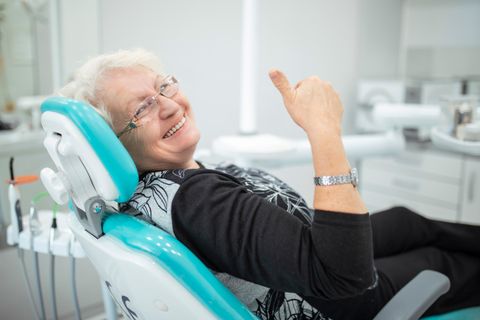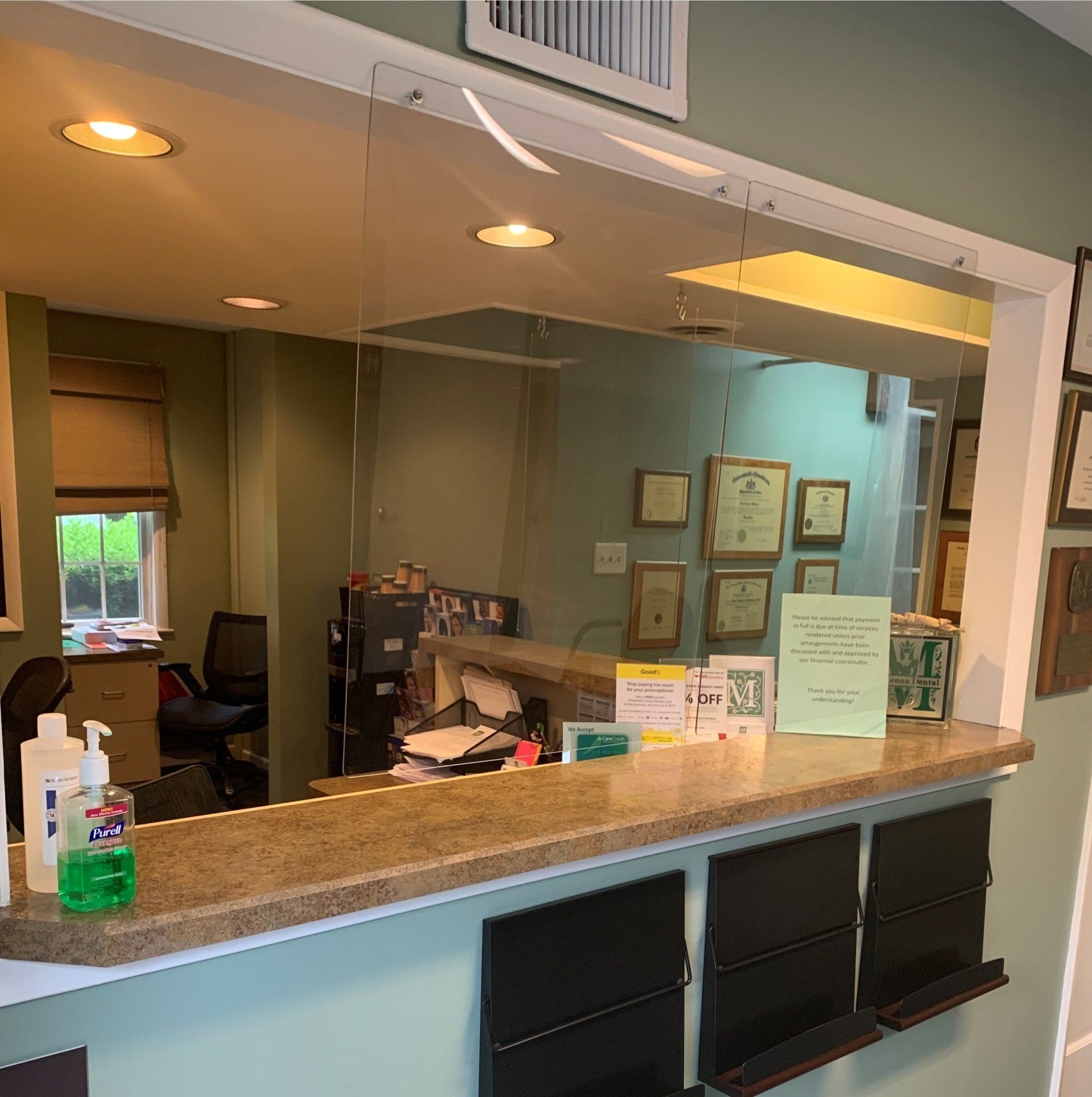- Maintain a daily regimen of brushing and flossing
- Avoid alcohol or drink only moderately
- Avoid tobacco
- Eat a healthy and balanced diet that incorporates fruits, vegetables and fiber-rich foods.
- Limit sugar-intake
- Visit the dentist regularly. Please do ask us any questions that you may have with respect to your oral health and update us on any changes to medications that you may be taking. If you are caring for an elderly parent, ask about ways for you to support their oral health care.
- Age changes; general changes in their body physiology
- Dealing with the effects of disease and drug therapy; seniors may become more susceptible to oral disease such as decay, gum disease and oral cancer. Additionally, increased use of medications, physical and cognitive deterioration and changes in diet may begin to impact oral health.
- Due to an incapacity to be mobile, seniors may not be able to always receive proper and timely dental care.
Health conditions – While diseases of the mouth and surrounding areas are a serious health risk, their relationship to overall general health is often not considered important or is simply overlooked.
Gum disease that is left untreated can lead to an increased risk of diseases of the respiratory system. This is primarily caused when the toxic bacteria that are contained in plaque make their way from the mouth to the lungs. The result is either respiratory infections or worsening of already existing cardiovascular conditions.
Seniors that are living with diabetes are a more susceptible population group to the affects of periodontal disease (i.e. gum disease that has advanced to the point of causing loss of bone and tissue attachments around existing teeth). Diabetics with uncontrolled gum disease are therefore more susceptible to tooth loss.
Seniors that may have compromised immune systems due to existing chronic ailments or medications are more susceptible to getting fungal and viral infections of the mouth.
Sensitive Teeth – A great number of people complain of tooth sensitivity, but more so amongst the senior population. The sensitivity is usually the result of a lifetime of wear and tear of the teeth and gums caused by factors such as brushing too aggressively, lack of oral hygiene leading to receded gums and overall gum disease, broken and fractured teeth, bruxism (grinding of teeth), acidic foods and complications resulting from certain dental treatments. The triggers for tooth sensitivity can be anything from thermal stimulation (hot or cold foods or drink), sugary or acidic foods, even just breathing in cold air.
Dentures – Many seniors who have lost some or all of their teeth are wearing removable dentures to replace those missing teeth. The proper care and maintenance of these partial or complete dentures is paramount to maintaining the health of the mouth. Poorly fitting dentures, and those that are not removed regularly to allow oral tissues and existing teeth to be adequately cleaned, can lead to further dental and oral tissue problems. Seniors that wear dentures are advised to continue regular dental visits to ensure proper fit and function of their dental prosthesis.
Tips for seniors and caregivers
Regular dental visits are a perfect time to speak to the dentist about concerns that you may have with regards to your oral health (or that of someone under your care) and will help to spot trouble early. It is also a time to update the dentist as to any medical issues or medications that you may be taking that could adversely affect your oral health.
Some additional tips for seniors and caregivers:
Brushing and flossing
Review the tips for proper brushing and flossing as instructed by your dentist or dental hygienist.
Always choose a soft toothbrush, run the bristles under warm water so as to further soften the brush against gum tissue, and remember to replace worn brushes every 3 to 6 months.
If your suffer from any condition that makes holding the toothbrush a challenge (e.g. arthritis or any other health conditions), speak to your dentist or dental hygienist about options
Denture Care
When cleaning or caring for your denture, in order to avoid accidental breakage should they fall, make sure to have a folded towel or a sink full water over which you handle your denture.
Avoid letting your dentures dry out. When not worn, do not simply leave them out exposed to the drying affects of air. Remember to soak them in a glass with water or a denture cleaning solution.
Never place your dentures in hot water, as that will cause the denture material to warp.
Brush, clean and rinse your dentures daily.
Message to Caregivers
If you are caring for a senior who is faced with physical or cognitive deterioration, please take note of their oral health by simple observation inside their mouth for any problems. Their oral health does impact the quality of their lives, and upon their overall systemic health. Maintain their regular dental visits in order that any problematic symptoms or troubling signs can dealt with early. If possible, attend the dental visit with the elder in your care in order to provide as much relevant medical information as possible.









